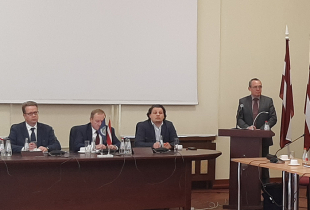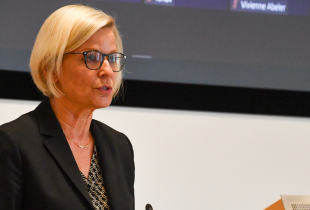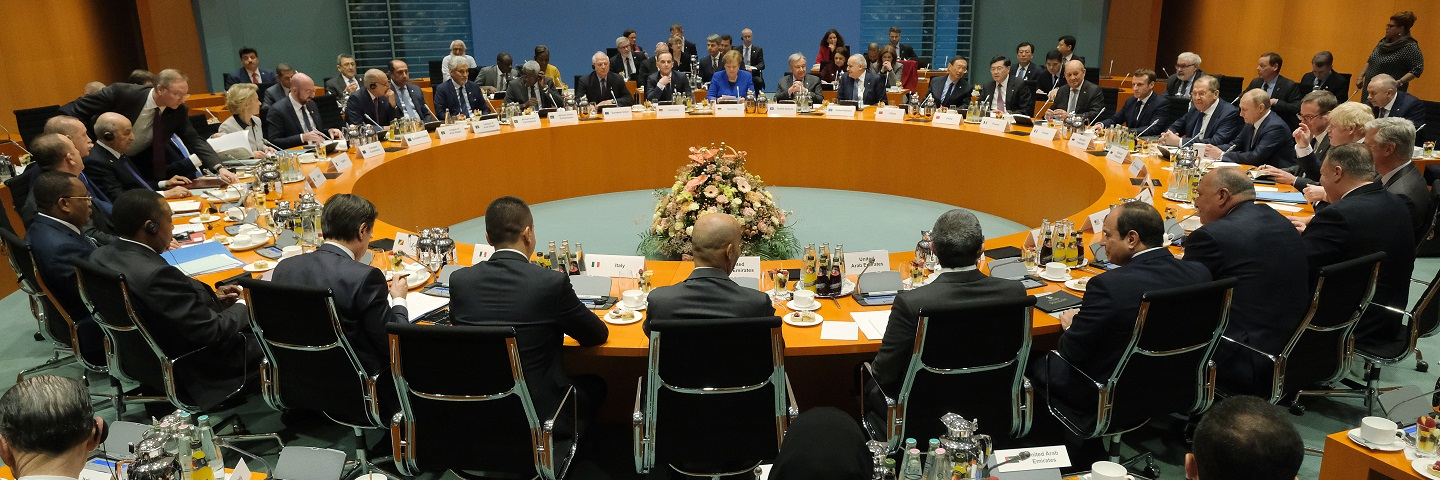
Russia as Peacebuilder? Russia’s Coercive Mediation Strategy
Executive Summary
- In this policy brief, I examine Russia’s role as a negotiator and mediator in a range of contemporary conflicts. In each case, Russia’s approach to conflict resolution differs significantly from that of Western democracies and most international organizations. It is best understood as coercive mediation, in which negotiations and coercive military actions are interlinked.
- Russian officials view peace talks through the lens of power politics. Conflict management is considered a hierarchical, top-down process in which peace is imposed by the stronger party, not freely negotiated by several actors.
- Coercive mediation requires the use of force—either directly or by arming proxies—but force is deployed in tandem with diplomatic initiatives and peace negotiations.
- If coercive mediation is successful, the result is a form of “illiberal peace,” in which violence is halted or reduced, but political and social grievances are largely ignored.
- Russia has attempted this type of mediation in several recent conflicts:
- In Syria, Russia has used its military dominance to enforce local ceasefires and to persuade opposition parties to negotiate within the Astana Format talks, with the involvement of Russia, Turkey, and Iran.
- In Libya, Russia leveraged its covert support for General Khalifa Haftar to persuade the warring parties to attend the Berlin conference in late 2019, in collaboration with Turkey, but a resolution remained elusive.
- In Afghanistan, officials promoted peace talks in the so-called Moscow Format and pursued a wider diplomatic role after providing support to the Taliban and other factions.
- In the Central African Republic (CAR), Russian officials and contractors negotiated truces with rebel warlords and attempted to promote a peace agreement at the national level, often working in competition with an alternative United Nations (UN) initiative.
- Russia has also offered to play a mediating role in other conflicts, such as those in Kashmir and Yemen and the conflict between Israel and Palestine.
- Russia’s approach has at times been superficially attractive, offering short-term responses that offer to halt deadly violence. However, in several cases, Russia’s military and diplomatic activities have instigated or worsened tensions. In the longer term, coercive mediation does not resolve the underlying tensions that gave rise to conflict in the first place.
The Russian Model: Coercive Mediation
Russia’s mediation model—which I term coercive mediation—is a form of negotiation informed by power politics. Typically, liberal approaches to conflict resolution have sought to end conflicts by finding a solution acceptable to all warring parties through peace talks. Peace processes in the 1990s in the Balkans, Northern Ireland, and South Africa all followed such a model, which assumes that peace can emerge from carefully mediated talks among different political factions and armed actors will compromise to achieve peace.
This approach—sometimes known as liberal peacebuilding—has relied on peace talks, often overseen by small, Western states, such as Norway, which were assumed to be neutral actors. Such initiatives have often been accompanied by an influx of international organizations and civil society into conflict zones, aiming to address both the immediate consequences of conflict and the underlying root causes. But liberal peacebuilding has a mixed record, often failing to resolve conflicts and arguably exacerbating others.1
As part of a wider backlash against liberalism, an alternative model of “illiberal” or “authoritarian” conflict management has become more prevalent. In this model, the response to an internal conflict relies on military force, but it is also accompanied by coercive forms of negotiation to co-opt parties, divide the opposition, and provide some legitimacy to counterinsurgency operations.2
Russia’s role in promoting illiberal responses to conflict began at home, when it rejected international attempts to mediate in the conflict in Chechnya and ended peace talks with rebels. Instead, after 1999 it pursued a remorseless counterinsurgency campaign, accompanied by political moves to promote loyal Chechens. Military victory was complemented by this “Chechenization” and consolidated by providing generous funding to cement Chechen leader Ramzan Kadyrov’s control.
At the international level, Russia consistently used its veto in the UN Security Council to shield governments in Sudan, Sri Lanka, Myanmar, and Syria from Western criticisms of human rights abuses or war crimes. Russia also challenged emerging international norms, such as the responsibility to protect (R2P), which demanded international intervention to halt mass abuses. Instead, Russia promoted hard understandings of state sovereignty.
Russia intervened militarily in Georgia (2008), Ukraine (2014), and Syria (2015). In each case, alongside military activity, Russia pursued various forms of diplomatic bargaining. In Georgia, fighting was halted by the six-point peace plan negotiated by French President Nicolas Sarkozy and Russian President Dmitry Medvedev, but the deal effectively protected Russia’s control of separatist regions. In Ukraine, Russia also achieved a diplomatic victory in the two Minsk agreements, which ensured that any reintegration of the Donbas into Ukraine would be fraught with political problems. In Syria, as discussed later, Russia has been an active proponent of both local and international peace negotiations.
Basic Tenets of Coercive Mediation
Coercive mediation does not propose a coherent blueprint or model. Unlike many Western liberal approaches, it is much more context-specific. Policies are based on a study of the correlation of forces in a conflict and on the local and regional power dynamics in each case. But there are some consistent elements that underpin Russia’s approach.
1. The goal is to stop the fighting, not to transform societies. Russia is not concerned with achieving social transformation or democratization but aims only to introduce a minimum of political order, in line with Russia’s geopolitical interests. Consequently, Russia is happy to support a wide range of partners with different ideologies—from the Taliban to General Khalifa Haftar’s Libyan rebels—just as long as they seem capable of imposing order and protecting Russia’s interests.
2. The only guarantee of stability is a strong state. While liberal approaches to conflict often view the state as part of the problem, Russia argues that a strong state is the only solution. Democratization and elections are often destabilizing, and it is better to have an authoritarian strongman who can keep order than a pluralist polity that allows terrorist and militant groups to flourish. Russia has backed rebel groups in Afghanistan and Libya, because it believes they offer a better chance of imposing order and accommodating Russian interests.
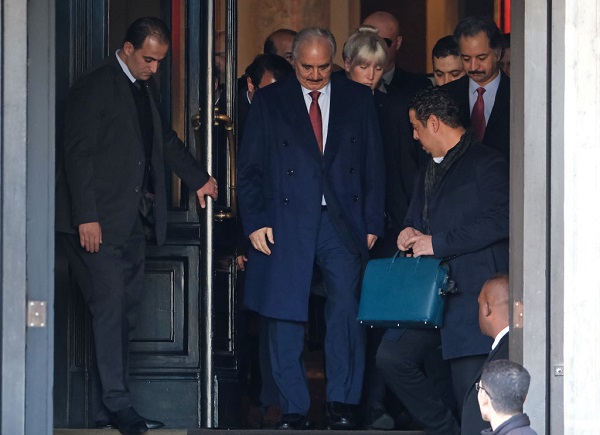
3. Powerful states are better mediators than weak states. Resolving conflicts is not best done through peace talks mediated by a neutral party (e.g., Norway) but by strong actors imposing their will on warring parties to achieve a cessation of violence (e.g., Russia, Turkey). In the case of Afghanistan, Russia has opposed a widening of the peace process to include numerous states from outside the region. The entrance ticket to the negotiation room is the power to influence armed groups on the ground.
4. Military activities and peace talks are closely inter-related. The line between war and peace is completely blurred: Peace talks are a continuation of war by other means. On the other hand, there can be no outright military victory without accompanying negotiations, diplomacy, and information campaigns.
5. Unscrupulous methods are acceptable to persuade parties to agree to peace proposals. To produce a settlement that respects its interests, Russia is willing to use a wide palette of methods, including promises of business deals, coercion and the use of violence, manipulation of humanitarian or development aid, or other violations of international humanitarian law.
6. All conflicts have a regional dimension. Because all regional powers are likely to have proxies in conflicts, Russia believes that a starting point for any conflict resolution is to achieve a regional consensus on a way forward. Conflict resolution needs a multi-level approach, in which consensus among regional powers precedes a political agreement on the ground. For more lasting geopolitical gain, Russia also seeks legitimation through the UN.
7. The West is part of the problem, not part of the solution. Moscow argues that the intervention of Western powers is one of the primary causes of conflict in the Middle East and elsewhere. Regional powers, not Western states, are the most effective actors to resolve conflicts. Most conflicts in which Russia is involved also represent an opportunity to weaken and supplant the United States and its allies.
Russia and Regional Conflicts
Many of these Russian mechanisms of conflict management were already familiar to scholars of post-Soviet wars in the early 1990s in such countries as Moldova, Georgia, and Tajikistan. However, they took on a new significance as Russia began projecting power outside the former Soviet space into the Middle East and other regions. Russia has become involved in wars in Syria, Libya, Afghanistan, and the CAR in different capacities. Each case demonstrates different elements of Russia’s coercive mediation model and different levels of success.
Syria and the Astana Process
Russia accompanied its military campaign in Syria in 2015 with a range of negotiations and mediation activities. On the ground, the Russian military was sometimes directly involved in ceasefire talks with rebels, but these were extremely asymmetric affairs, forming part of the Russian-backed Syrian counterinsurgency campaign. Negotiations with rebels were preceded by tactics of siege and aerial bombardment and were designed to force fighters to agree to leave the area and move to de-escalation zones. Eventually, most fighters ended up in Idlib because other de-escalation zones were overrun by government forces.3
At the international level, Russia established an alternative peace process in January 2017 in place of the moribund Geneva process. The so-called Astana process (launched in the Kazakh capital) brought together Turkey, Iran, and Russia as guarantor states to preside over a series of meetings with members of the armed opposition and government delegates. Progress was slow and initially confined to agreement on de-escalation zones, including Idlib.4 The three states supported a Syrian National Dialogue Congress, which convened in Sochi in January 2018. Delegates agreed to establish a Constitutional Committee under the auspices of the UN Geneva process, comprising a mix of government, opposition, and civil society delegates. The committee finally met in Geneva in late October 2019.
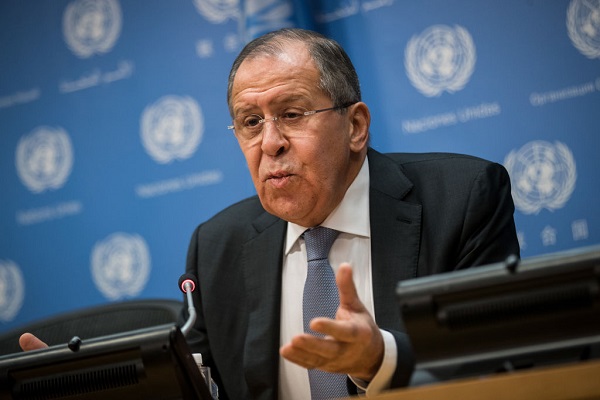
The Constitutional Committee made little headway, partly because the Syrian government had little interest in compromise with the opposition, once it believed that a complete military victory was possible.5 Russia and Turkey had fundamental policy differences over the future of Syria, and the Astana talks failed to resolve these issues. Although the Astana process did not produce a final political settlement, it enabled Russia to divide the opposition and eventually effectively take over the UN process and co-opt other parties to the conflict. The Astana initiative completely undercut alternative talks and effectively derailed attempts to unite opposition groups.
Afghanistan
Since 2016, Russia has attempted to develop an alternative peace process to resolve the conflict in Afghanistan through a series of talks known as the Moscow Format. This initiative followed the same two-level approach as in Syria: talks on a political settlement with regional powers and intra-Afghan talks and Russian engagement with different parties inside Afghanistan.
As elsewhere, Russia used its engagement with armed groups on the ground—including the Taliban—to leverage a position in the peace process. Regional talks on Afghanistan began with a meeting in December 2016 of Russian, Pakistani, and Chinese diplomats.6 This became the core of a widening set of negotiations among regional players—with China, Iran, Pakistan, and Russia playing central roles, with India and the Central Asian states also involved. Talks in this format in 2017 did not lead to any major breakthrough, but in November 2018, Moscow brokered a further Moscow Format–style summit of regional powers, but this time with an intra-Afghan meeting that included the Taliban for the first time.
As talks got underway between the United States and the Taliban in 2019, Russia continued to pursue its own parallel track. On February 5–6, 2019, Russia hosted a so-called Intra-Afghan Dialogue in Moscow, attended by powerful opposition figures and a Taliban delegation.7 There was a further meeting in May; a Taliban delegation visited Moscow in September, during a hiatus in the U.S. talks. None of these meetings made any progress on a political settlement, but they ensured that Russia retained a key role in the process. Russia publicly supported a peace deal between the United States and the Taliban in February 2020, but many officials were skeptical that it would succeed. Russia remained ready to restart its own regional approach should the U.S. negotiations falter. In June 2020, Russia engaged in a new round of international diplomacy – with regional powers and with the U.S. – to encourage the government and the Taliban to initiate peace talks.
Libya
Russia’s role in the Libyan conflict followed some of the same principles as other types of coercive mediation, but it also demonstrated the difficulty of managing proxies—a major challenge in Russia’s coercive mediation. By early 2020, Russia’s unofficial backing for General Haftar and his Libyan National Army (LNA) had grown significantly: At least 1,000 mercenaries of PMC Wagner, a Russian private military company, were reportedly working with the Libyan National Army, supported by Egypt, Saudi Arabia, and the United Arab Emirates. Meanwhile, Turkey had begun to provide growing military support and troop deployments for the UN-recognized Government of National Accord (GNA) of Libya, led by Prime Minister Fayez al-Sarraj.
The stage seemed to be set for a new Astana-style peace process, in which Russia and Turkey would deliver their own proxies and share influence in a post-conflict Libya. The two leaders presided over negotiations between the two sides in Moscow in January 2020, but Russia’s calculation that it could deliver Haftar backfired. Haftar refused to sign up to a ceasefire either in Moscow or at the subsequent Berlin conference on January 19; and he resumed his offensive on Tripoli. The Libya case demonstrated how difficult it can be to control the activities of proxies in a conflict. Because Haftar had numerous backers in addition to Russia (including Egypt and UAE), he had sufficient room for maneuver to avoid a Turkish-Russian deal at his expense. His subsequent retreat from Tripoli in May 2020 and the strengthened position of the Turkey-backed GNA once again threw the whole situation into flux.
Central African Republic
In the CAR, Russian officials and private companies with close connections to the Russian state have engaged in peace talks with rebels. Much of this initiative appears to have been freelancing by self-styled Russian negotiators, often with the primary aim of securing access to mineral resources for private Russian companies, but also to bolster the regime of CAR President Faustin-Archange Touadéra. The president had turned to Moscow for arms and training in 2017, after fighting flared between pro-government militias and anti-Seleka and other rebel groups. During 2018, mercenaries linked to PMC Wagner were involved in training CAR fighters; in addition, Valery Zakharov, a Russian, was appointed as security advisor to Touadéra and brought in a Russian close-protection team for the president. Zakharov himself reportedly was involved in several negotiations with rebels.
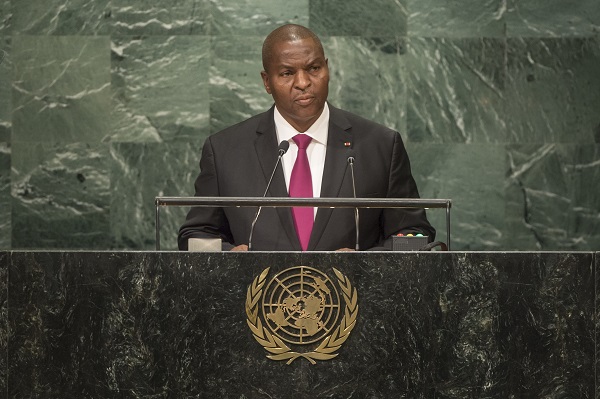
In July and August 2018, Russian negotiators (it is not clear whether they were government officials or Wagner employees) met with rebel groups in Khartoum to try to finalize a peace deal. This Russian-Sudanese initiative appeared to undermine an African Union–led mediation process launched earlier in the year. The Russian initiative caused international controversy and a split in the UN Security Council, but it probably had the benefit of encouraging a major push by France and the United States to support the African Union initiative more strongly. Intense diplomacy by the African Union resulted in that peace process subsuming the Russian-Sudanese peace initiative. A Political Agreement for Peace and Reconciliation was finally signed in Bangui on February 6, 2019, under the auspices of the African Union and the United Nations, but with Russian support.8
Conclusion
During the 2010s, Russia demonstrated growing ambitions to become a global security actor once more. In addition to selling arms and providing security assistance, Moscow also styled itself as a potential mediator in conflicts. In the Middle East, alongside its role in Libya and Syria, Russia has also offered to mediate in the Yemen civil war9 and in the Israeli-Palestinian conflict. It has also proposed a new security concept for the Gulf region. In 2019, Russia offered to mediate to reduce tensions between India and Pakistan.10 None of these initiatives has produced a breakthrough, but they demonstrate Russia’s willingness to play a wider political and diplomatic role in the region.11
Russia has many of the instruments needed to make headway in complex peace negotiations, including good intelligence and analytical capabilities and an effective diplomatic service. But so far, Russia has had mixed success. Its model has two major conceptual flaws. First, Russia rightly points out that peace negotiations need to consider power politics, including the interests of regional powers. At times, however, a focus on great-power rivalries oversimplifies conflicts and overlooks complex local dynamics that can derail international initiatives. Second, Russia’s unwillingness to address underlying grievances or political injustices makes it difficult to achieve a sustainable peace. At best, coercive mediation leads to an imposition of an illiberal or authoritarian peace, but without addressing deeper social and political problems, there is a risk that violent conflict will reemerge in the future.
Nevertheless the coercive mediation model poses a challenge to rethink many aspects of liberal conflict resolution and peacebuilding. Conflict resolution efforts need to take more account of international power politics and be based on a realistic appraisal of the balance of forces inside a country, without giving up on the need to address underlying grievances and injustices. Russia's mediation initiatives should at least galvanize other parties to become more active in seeking ways to halt civil wars and end deadly conflict.
For Academic Citation
David G. Lewis, “Russia as Peacebuilder? Russia’s Coercive Mediation Strategy,” Marshall Center Security Insight, no. 61, June 2020, https://www.marshallcenter.org/en/
publications/security-insights/russia-peacebuilder-russias-coercive-mediation-strategy-0.
Notes
1 Oliver P. Richmond, “The Problem of Peace: Understanding the ‘Liberal Peace,’” Conflict, Security & Development, Vol. 6, No. 3, 2006, pp. 291–314.
2 David Lewis, John Heathershaw, and Nick Megoran, “Illiberal Peace? Authoritarian Modes of Conflict Management,” Cooperation and Conflict, Vol. 53, No. 4, 2018, pp. 486–506.
3 Marika Sosnowski, “Ceasefires as Violent State-Building: Local Truce and Reconciliation Agreements in the Syrian Civil War,” Conflict, Security & Development, 2019.
4 “Syrian War: All You Need to Know About the Astana Talks,” Al-Jazeera, October 30, 2017, https://www.aljazeera.com/news/2017/10/syrian-war-astana-talks-171029160554816.html.
5 Syrian leader Bashar al-Assad pointed out that, “Legally, we are not a part of the Constitutional Committee,” and said that the government recognized only the Russia-led Sochi process. See Lara Seligman and Colum Lynch, “As Assad Gains Ground, New Syria Talks Offer Little Hope of Peace,” Foreign Policy, November 12, 2019, https://foreignpolicy.com/2019/11/12/as-assad-gains-ground-new-syria-talks-offer-little-hope-of-peace.
6 Peter Hobson, “Russia, Pakistan, China Warn of Increased Islamic State Threat in Afghanistan,” Reuters, December 27, 2016, http://www.reuters.com/article/us-afghanistan-taliban-russia-pakistan-c-idUSKBN14G19I.
7 “Taliban, Afghan Delegations Hail ‘Successful’ Moscow Meeting, Pledge to Meet Again,” Radio Free Europe/Radio Liberty, February 7, 2019, https://www.rferl.org/a/taliban-afghan-delegation-say-talks-to-continue/29756223.html.
8 International Crisis Group, Making the Central African Republic’s Latest Peace Agreement Stick, Brussels, Report No. 277, June 18, 2019.
9 Samuel Ramani, “Can Russia Play a Role in Ending the Yemeni Civil War?” Middle East Institute, August 12, 2019, https://www.mei.edu/publications/can-russia-play-role-ending-yemeni-civil-war.
10 Maxim Rodionov and Tom Balmforth, “Russia Offers to Help Mediate Between India and Pakistan,” Reuters, February 28, 2019, https://www.reuters.com/article/us-india-kashmir-russia/russia-offers-to-help-mediate-between-india-and-pakistan-idUSKCN1QH1EI.
11 Marianna Belenkaya, “Ot Livii do ubiystva Suleymani. Chto oznachayet dlya Rossii novaya nestabil'nost' na Blizhnem Vostoke,” Carnegie Moscow Center, 2020, https://carnegie.ru/commentary/80698.
About the Author
David Lewis is Associate Professor of International Relations at the University of Exeter. David’s research interests include international peace and conflict studies, with a regional focus on Russia and other post-Soviet states. He is the author of numerous articles and books on Russia and Eurasia, including most recently Russia’s New Authoritarianism: Putin and the Politics of Order (Edinburgh University Press, 2020).
Russia Strategic Initiative (RSI)
This program of research, led by the GCMC and funded by RSI (U.S. Department of Defense effort to enhance understanding of the Russian way of war in order to inform strategy and planning), employs in-depth case studies to better understand Russian strategic behavior in order to mitigate miscalculation in relations.
The George C. Marshall European Center for Security Studies
The George C. Marshall European Center for Security Studies in Garmisch-Partenkirchen, Germany, a German-American partnership, is committed to creating and enhancing worldwide networks to address global and regional security challenges. The Marshall Center offers fifteen resident programs designed to promote peaceful, whole of government approaches to address today’s most pressing security challenges. Since its creation in 1992, the Marshall Center’s alumni network has grown to include over 14,000 professionals from 157 countries. More information on the Marshall Center can be found online at www.marshallcenter.org.
The articles in the Security Insights series reflect the views of the authors and are not necessarily the official policy of the United States, Germany, or any other governments.
